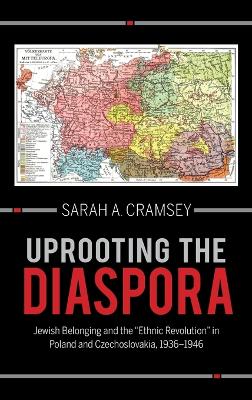Modern Jewish Experience
1 total work
In Uprooting the Diaspora, Sarah Cramsey explores a new interpretation of the evolution of the idea of a Jewish homeland in Palestine, as well as the position that Jewish citizens occupied in the political discourse in Poland and Czechoslovakia before the outbreak of World War Two and just after the Holocaust. She asks, how did the sense of Jewish belonging shift from diaspora countries to a single, shared nation?
Rather than detailing the destruction of Jewish communities and the decision of the survivors to leave their countries of birth, Cramsey draws on a vast array of historical sources to examinewhat she calls a "transnational conversation" carried out by a small but influential coterie of Allied statesmen whose shifting understandings of Jewish belonging and diplomatic interventions shaped the region in the post-war period.
Uprooting the Diaspora slows down the chronology between 1936 and 1946 to show how individuals once invested in multi-ethnic visions of diasporic Jewishness within east-central Europe and the Americas came to define Jewishness solely in ethnic terms. They went on to embrace a narrower, nationalistic version of Jewish belonging that was inextricably linked to a particular geographic space in Mandate Palestine, far away from their prewar homes.
